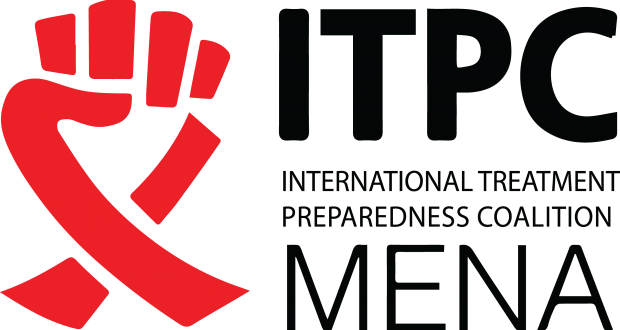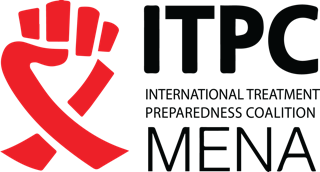
Supporting Key Populations in the MENA Region During the Crisis: A Time for Action and Reflection
On 30 April 2020, a webinar was convened by the Global Fund & Civil Society Platform to discuss the situation of key populations in light of COVID-19.
Ellie Ballan, Director of M-Coalition (Lebanon), Nadia Badran, Executive Director of SIDC (Soins Infirmiers et Développement Communautaire, Lebanon), Evet Adel, HIV Programmes Manager, Caritas (Egypt), Ghizlane
Mghaimimi, Project Director at ASCS (Association Sud contre le Sida, Morocco), and Faouzia Bouzzitoun, Director of AHSUD, (Association Hasnouna de Soutien aux Usagers de Drogues, Morocco) have all presented on: (a) the responses implemented by their respective organisations to address the challenges and inequalities affecting the day-to-day lives of the key populations; (b) the manner in which they have sustained key-population-oriented services; and (c) how they have continued to disseminate accurate and credible information, keeping a critically alert view on reality.
Following the presentations, the 32 participants representing civil society, communities, UNAIDS, the Global Fund’s Program Management Unit, and Country Coordinating Mechanisms (CCMs) were invited to ask questions, either in writing via the chat window or viva voce. There was consensus among the speakers on the significance of the challenge at hand and on the necessity of mutual aid, namely through the dissemination of good practices.
Adaptation and Continuity: The Two Keywords Recurring in the Various Statements
In the MENA region, the response to the risk that COVID-19 poses for the key populations has been swift and ahead of the curve. Despite the existing
variations in socioeconomic, institutional, and political environments, the statements made during the webinar all converged on the importance of
reinforcing communications and advocacy, providing the key populations with reliable and context-specific COVID-19 information, and continuing the
delivery of services oriented towards these populations.
During this period of lockdown, communication is not only crucial to maintaining bonds and sustaining a sense of belonging to the community, but it is equally essential to knowing the material and psychological situation of the key populations. A survey of 100 people conducted in Lebanon has shown that 50% of the respondents were in greater need of psychological assistance during this period. All too often marginalised, these populations are the most exposed in this time of crisis.
Several communication schemes have been adopted: toll-free telephone numbers offering information and psychological support services; dissemination of awareness-raising and psychological-support videos; use of posters, social media, and one-on-one WhatsApp calls for confidentiality purposes – as well as collective WhatsApp calls for pre-existing groups, always with the consent of the beneficiaries and attention to security considerations. In-person appointments have also been arranged in emergencies and on a case-by-case basis. When required, the organisations have provided mobile phones or means to top up SIM cards or internet service in order to stay in touch with the social workers.
The fear and anxiety triggered by the epidemic set in rapidly among the key populations, particularly regarding questions about how the virus is
transmitted, its effects, and the duration of those effects on persons living with HIV (PLHIV), LGBT community members, and drug users.
Overcoming fear and misconceptions of COVID-19 was essential for beneficiaries to be able to focus on their self-protection. Whether through
specialised, category-specific leaflets, online or telephone communications, web publications, posters or, much less frequently, on the ground (Morocco), the organisations have efficiently relayed reliable and targeted information to the key populations on their sexual, psychological, and general health and well-being.
To ensure continuity of services and account for the new needs arising from both COVID-19 and the economic fallout of the lockdown, the speakers said
they have re-programmed and adjusted their activities. This was all the more crucial given that the lockdown and its subsequent financial stress make the key populations more vulnerable to exploitation and violence – namely by their own hosts – and more prone to risk-taking, as is the case of sex workers, for instance, who would come to accept unprotected sex. In Lebanon, the situation is further compounded by the fact that the COVID-19 crisis has landed on top of a deep political and economic crisis.
Armed with determination – often virtually, but also by appointment in their offices or, if required, in situ – the organisations are managing to deliver a substantial portion of their medical, psychological, educational, awareness-oriented, and needs-assessment services. They have ensured the availability of medicines in sufficient quantities for the lockdown period (in Egypt, for example), sent treatments or risk-reduction equipment to certain persons with limited mobility options (due to the lockdown, health conditions, detention, or distance from urban centres), distributed condoms on the ground (Morocco), and updated their databases so as to reach as many potential beneficiaries as possible.
Amid COVID-19, a new need has surfaced with a roar: the economic fragility of key populations. All organisations have mobilised resources to support
them economically as much as possible. Indeed, in Lebanon, citizens no longer have access to their savings and many have found themselves unemployed. In Morocco, the state is doling out aid during the lockdown, but the most marginalised are often excluded. In Egypt, more than 90% of Caritas beneficiaries work in informal, day-by-day, or temporary jobs for which they do not receive compensation.
The response by the organisations has been multifaceted: distribution of hygiene products and food aid, assistance in administrative formalities for
obtaining government aid (Morocco); full undertaking of treatment procedures (Lebanon); advocacy and coordination with other civil-society actors to deliver this economic assistance.
A Path Strewn with Pitfalls
Despite such a remarkable capacity for adaptation, certain major difficulties, which vary from country to country, remain: hurdles facing the screening and monitoring of new HIV cases; Lebanese citizens stuck in another country and unable to obtain triple therapy; inability to communicate with beneficiaries who are victims of gender-based violence in their homes; difficult access to invisible drug users not undergoing substitution treatment; difficult access to populations in rural areas or areas far from health centres; shortage of medicines in Lebanon; continued sex work under strong economic pressures, and so on.
Virtual forums raise the prickly question of the security and confidentiality of electronic communications. In addition, because of COVID-19, many health facilities do not consider HIV as a priority: Just finding a doctor for the beneficiaries can be a veritable obstacle course, not to mention the unexpected medical costs for the organisations.
While this crisis underscores the vulnerability of key populations, it also shows the organisations’ fragility and dependence on donors. Some of these
organisations, though deeply committed to the HIV response, have redirected part of their funding to COVID-19. Others have cut wages or imposed unacceptable conditions to protect the beneficiaries’ privacy. This will have to be taken into account in the years to come.
Advocacy and Solidarity for System Change
The speakers are unanimous: Only the reduction of the key populations’ socio-economic fragility and marginalisation, through reinforced programmes with guaranteed sustainability, would make a more self-assured response possible in the event of another crisis. More than ever, it is imperative to mobilise the efforts of civil society and human-rights associations, given that these populations are not – and will not soon become – the priority of Arab public policies. From an international perspective, HIV is not a priority issue in the MENA region, either.
How, then, can we increase regional solidarity, intensify advocacy and engagement with official, medical, and non-governmental bodies, and reintegrate forgotten populations by promoting their economic and social independence? Well, when the lockdown is lifted, actors from all countries will have to join their efforts to bring answers to these questions.










